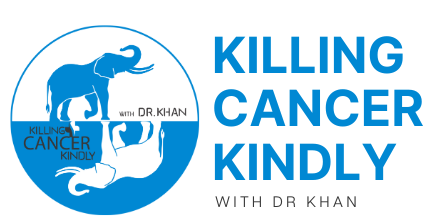What you need to know
Lung cancer is a serious and life-threatening disease that affects millions of people worldwide. Understanding lung cancer life expectancy is essential for patients and their families, as it provides insight into the prognosis and potential outcomes of the disease. In this article, we will explore various aspects of lung cancer life expectancy, including factors that influence it, treatment options, survival rates, and available resources for patients.
Understanding Lung Cancer
What is Lung Cancer?
Lung cancer is a type of cancer that starts in the lungs and can spread to other parts of the body. It is one of the leading causes of cancer-related deaths globally. The two main types of lung cancer are non-small cell lung cancer (NSCLC) and small cell lung cancer (SCLC). Early detection and timely treatment play a crucial role in improving the chances of survival and the potential for curing the disease.
What are the Different Stages of Lung Cancer?
Lung cancer is staged based on the size of the tumor, its extent of spread, and whether it has affected nearby lymph nodes or other organs. The stages range from stage 0 (in situ, localized) to stage IV (advanced, metastatic). The stage at which lung cancer is diagnosed impacts the treatment options and overall prognosis.
Lung Cancer Life Expectancy
Lung cancer life expectancy refers to the average time a person with lung cancer is expected to live, considering various factors. It is essential to understand that lung cancer is a highly heterogeneous disease, and life expectancy can vary significantly from person to person.
Factors Affecting Lung Cancer Life Expectancy
Several factors can influence lung cancer life expectancy, including:
Stage of Cancer:
The stage at which lung cancer is diagnosed plays a crucial role in determining life expectancy. Early-stage cancers generally have better outcomes than advanced-stage cancers.
- Type of Lung Cancer:
Non-small cell lung cancer (NSCLC) tends to have better survival rates compared to small cell lung cancer (SCLC) however SCLC tends to be more responsive to chemotherapy but tends to become resistant later in the course of disease.
- Tumor Size and Spread:
The size of the tumor and whether it has spread to nearby lymph nodes or other organs can impact life expectancy.
- Overall Health:
The patient’s overall health, age, and underlying medical conditions can affect how well they respond to treatment and their ability to tolerate therapies.
- Smoking History:
Smoking is a significant risk factor for lung cancer. Those with a history of heavy smoking may have a higher risk of developing aggressive lung cancer.
Improving Lung Cancer Life Expectancy Through Treatments
Advancements in medical science have led to the development of various treatment options for lung cancer, which can improve life expectancy:
- Surgery: Surgery is an option for early-stage lung cancer, where the tumor is removed from the lung.
- Chemotherapy: Chemotherapy uses drugs to target and kill cancer cells, and it is commonly used in advanced-stage lung cancer.
- Radiation Therapy: Radiation therapy delivers high doses of radiation to cancer cells, shrinking tumors and slowing their growth.
- Targeted Therapy: Targeted therapies specifically target certain molecules or genetic changes in cancer cells, disrupting their growth.
- Immunotherapy: Immunotherapy boosts the body’s immune system to recognize and attack cancer cells.
Lung Cancer Life Expectancy Without Treatment
Without treatment, lung cancer can progress rapidly, leading to significant health complications and a shortened life expectancy. However, life expectancy without treatment can vary widely depending on the type and stage of lung cancer, as well as individual health factors.
Lung Cancer Survivors
How Many People Survive Lung Cancer?
Survival rates for lung cancer vary based on several factors, but they have been improving over the years due to advancements in treatment and early detection. The overall 5-year survival rate for lung cancer is around 20%, but it can be much higher for early-stage cancers.
Challenges of Being a Lung Cancer Survivor
Being a lung cancer survivor comes with its own set of challenges. Some survivors may experience the physical and emotional effects of cancer and its treatments, as well as concerns about recurrence and long-term health.
Help for Patients After a Lung Cancer Diagnosis
Resources Available for Patients with Lung Cancer
Several resources are available to support patients with lung cancer and their families. These include:
- Support Groups:
Joining support groups can provide a safe space to connect with others facing similar challenges and share experiences.
- Counseling Services:
Professional counseling can help individuals cope with the emotional impact of a lung cancer diagnosis.
- Educational Materials:
Educational materials and online resources offer valuable information about lung cancer and its management.
How Can You Get Support?
Patients with lung cancer can seek support from their healthcare team, who can provide information on available resources and connect them with support services. It is essential for patients to communicate openly with their medical team about their needs and concerns.
Conclusion
Understanding lung cancer life expectancy is critical for patients and their loved ones, as it helps them make informed decisions about treatment and cope with the challenges of the disease. While lung cancer can be a daunting diagnosis, advances in medical research and treatments offer hope for improved outcomes and prolonged survival. Patients are encouraged to seek support from healthcare professionals, support groups, and resources to navigate their lung cancer journey with confidence.


